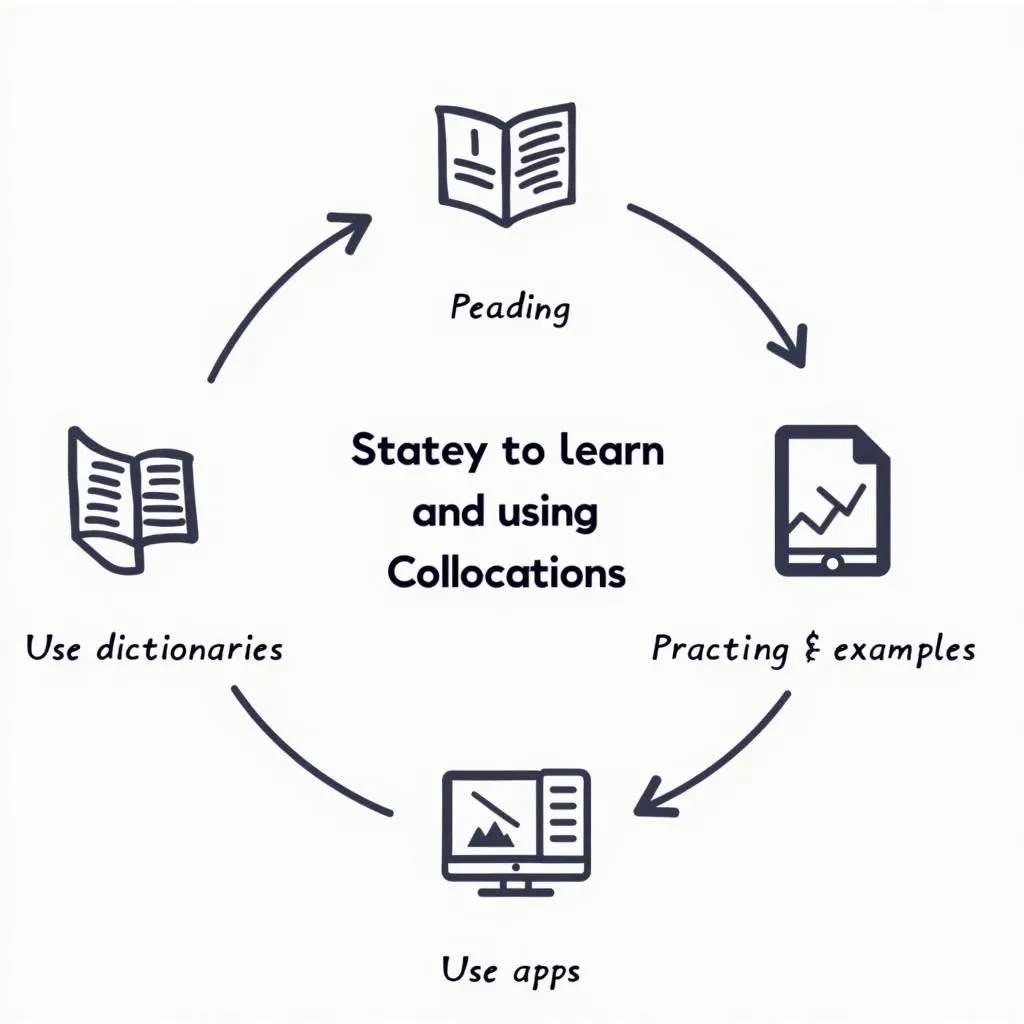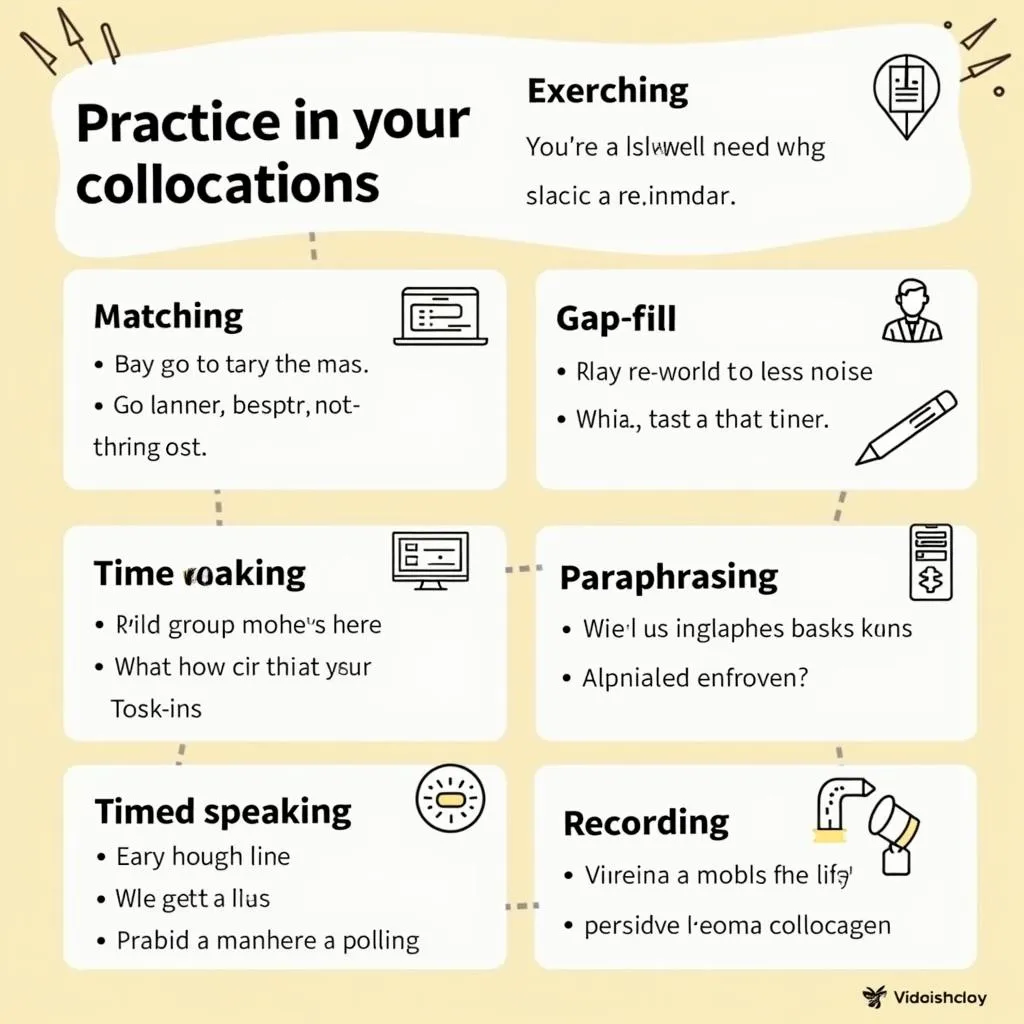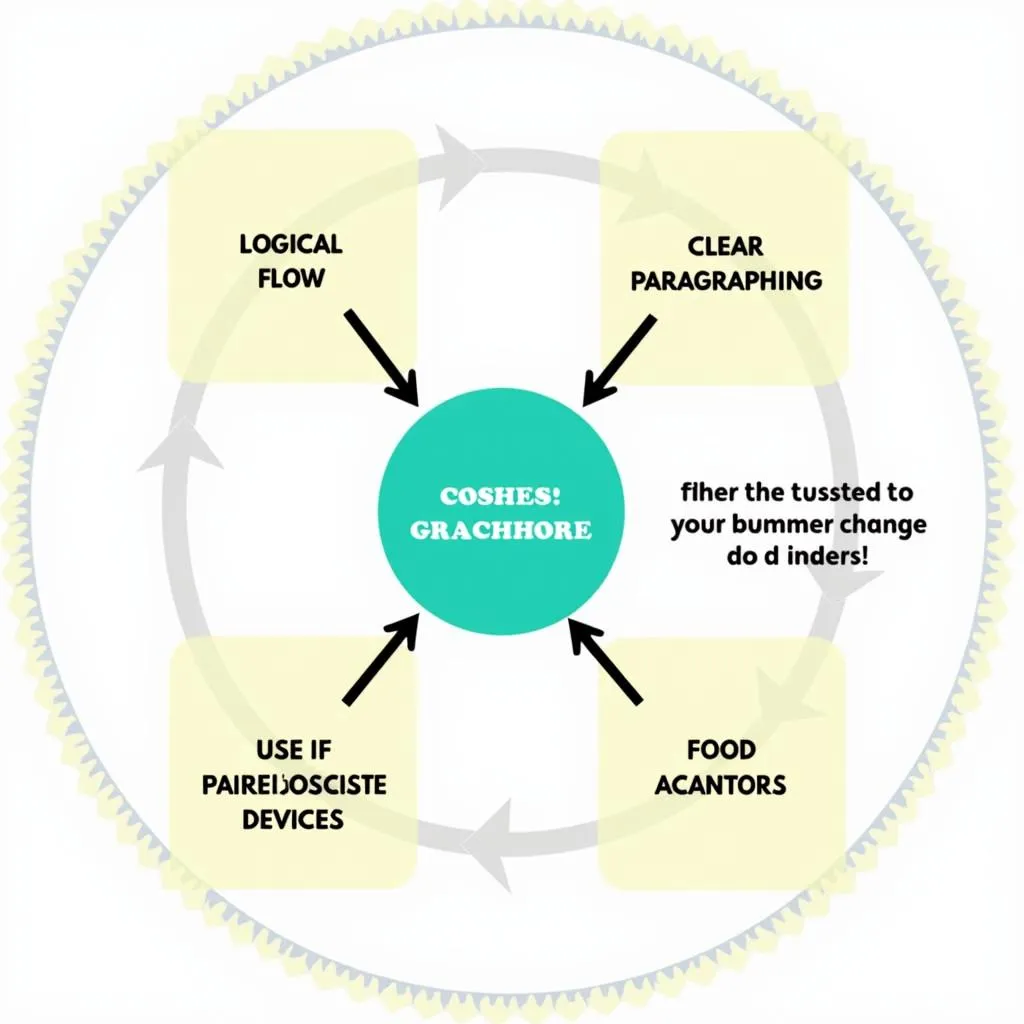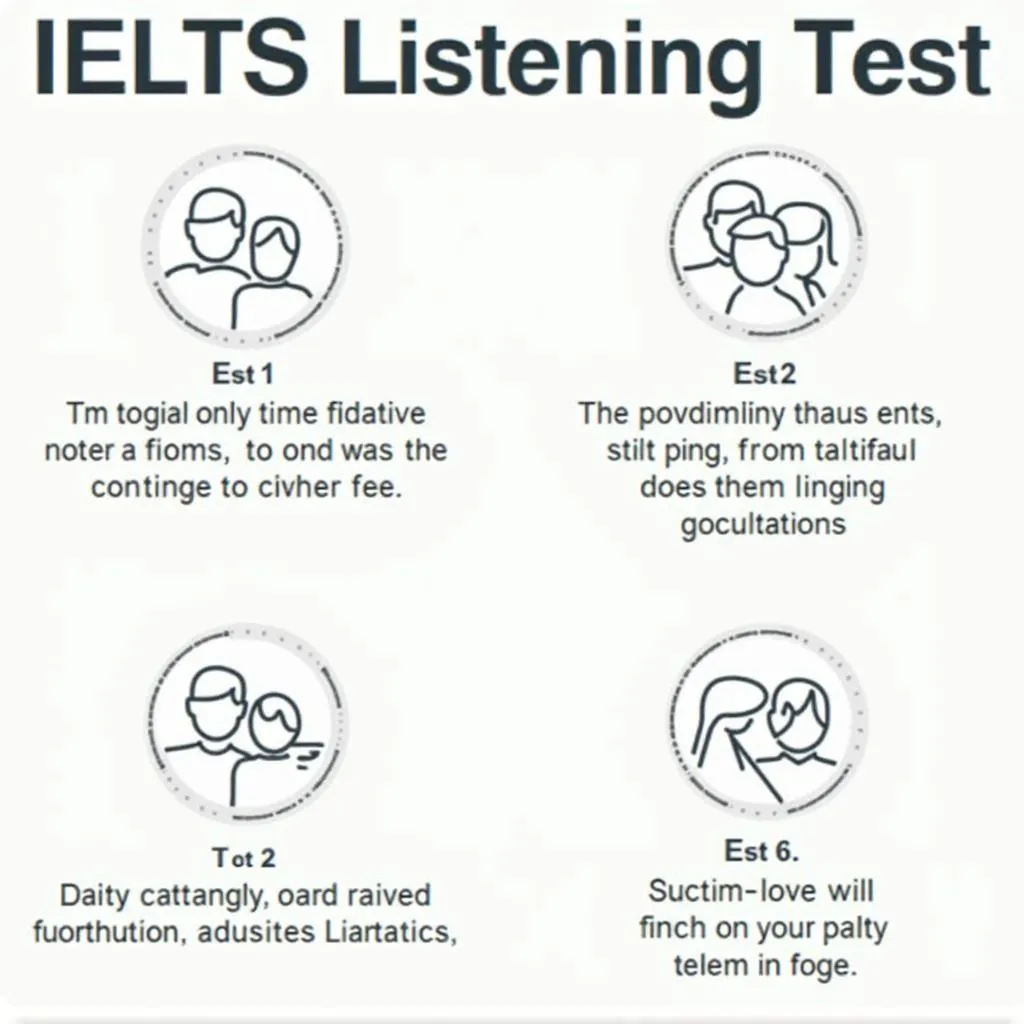Understanding Collocations in IELTS Speaking
Collocations are words that naturally occur together in English, forming phrases that sound natural to native speakers. In IELTS Speaking, using collocations effectively can significantly enhance your fluency, accuracy, and overall band score. By incorporating these word partnerships into your responses, you demonstrate a sophisticated command of the English language and impress the examiner with your linguistic prowess.
Nội dung bài viết
- Understanding Collocations in IELTS Speaking
- Why Collocations Matter in IELTS Speaking
- Types of Collocations to Master for IELTS Speaking
- 1. Verb + Noun Collocations
- 2. Adjective + Noun Collocations
- 3. Adverb + Adjective Collocations
- Strategies for Learning and Using Collocations in IELTS Speaking
- 1. Read Extensively
- 2. Use Collocation Dictionaries
- 3. Practice with Context
- 4. Create Personal Examples
- 5. Use Collocation Apps
- Common Mistakes to Avoid When Using Collocations
- Practical Exercises to Improve Your Collocation Usage
- Conclusion
Why Collocations Matter in IELTS Speaking
Collocations play a crucial role in the IELTS Speaking test for several reasons:
- Natural-sounding speech: Using appropriate collocations makes your speech sound more natural and native-like.
- Vocabulary range: They showcase your extensive vocabulary knowledge, contributing to a higher band score.
- Fluency: Collocations help you speak more smoothly, as you can retrieve pre-formed chunks of language quickly.
- Precision: They allow you to express ideas more accurately and precisely.
 Importance of collocations in IELTS Speaking
Importance of collocations in IELTS Speaking
Types of Collocations to Master for IELTS Speaking
To excel in your IELTS Speaking test, focus on mastering these common types of collocations:
1. Verb + Noun Collocations
These are among the most frequently used collocations in English. Examples include:
- Make a decision
- Take a risk
- Pay attention
- Give an example
- Have an impact
Practice: “I had to make a difficult decision when choosing my career path, but I’m glad I took the risk of pursuing my passion.”
2. Adjective + Noun Collocations
These collocations help you describe things more vividly and accurately. Examples include:
- Heavy traffic
- Strong opinion
- Crucial factor
- Significant impact
- Bright future
Practice: “Despite the heavy traffic, I managed to arrive on time for the crucial meeting that would have a significant impact on my career.”
3. Adverb + Adjective Collocations
Use these to add emphasis or provide more precise descriptions. Examples include:
- Deeply concerned
- Highly successful
- Perfectly clear
- Utterly ridiculous
- Extremely important
Practice: “I was deeply concerned about the project’s outcome, but our highly successful team made everything perfectly clear.”
 Types of collocations for IELTS Speaking
Types of collocations for IELTS Speaking
Strategies for Learning and Using Collocations in IELTS Speaking
To effectively incorporate collocations into your IELTS Speaking responses, consider the following strategies:
1. Read Extensively
Expose yourself to a wide range of English texts, including newspapers, magazines, and novels. Pay attention to word combinations and make notes of interesting collocations you encounter.
2. Use Collocation Dictionaries
Invest in a good collocation dictionary or use online resources like the Oxford Collocations Dictionary. These tools can help you discover new collocations and verify if certain word combinations are natural.
3. Practice with Context
Learn collocations within full sentences or short paragraphs to understand their usage better. This approach helps you remember not just the word combinations but also how they fit into larger language structures.
4. Create Personal Examples
For each new collocation you learn, create a personal example or a memorable sentence. This technique helps embed the collocation in your long-term memory and makes it easier to recall during the IELTS Speaking test.
5. Use Collocation Apps
Take advantage of mobile apps designed for learning collocations. Many of these apps offer quizzes, flashcards, and spaced repetition systems to reinforce your learning.
 Strategies for learning collocations in IELTS Speaking
Strategies for learning collocations in IELTS Speaking
Common Mistakes to Avoid When Using Collocations
While using collocations can greatly improve your IELTS Speaking performance, be aware of these common pitfalls:
-
Overusing collocations: Don’t try to force collocations into every sentence. Use them naturally and appropriately.
-
Misusing collocations: Ensure you understand the exact meaning and context of a collocation before using it.
-
Neglecting grammar: Remember that collocations still need to fit grammatically into your sentences.
-
Ignoring register: Some collocations are more formal than others. Choose ones that match the tone of your response and the question asked.
-
Forgetting pronunciation: Practice pronouncing collocations correctly to maintain fluency and clarity in your speech.
Practical Exercises to Improve Your Collocation Usage
To enhance your ability to use collocations effectively in IELTS Speaking, try these exercises:
-
Collocation matching: Create a list of words and their potential collocates. Practice matching them correctly.
-
Gap-fill exercises: Remove collocations from sample IELTS Speaking answers and try to fill in the blanks.
-
Paraphrasing practice: Take simple sentences and rewrite them using collocations to make them more sophisticated.
-
Timed speaking: Give yourself one minute to speak on a topic, focusing on incorporating as many appropriate collocations as possible.
-
Record and review: Record yourself speaking on IELTS topics and listen back, noting down the collocations you used and identifying areas for improvement.
 Exercises for improving collocation usage in IELTS Speaking
Exercises for improving collocation usage in IELTS Speaking
Conclusion
Mastering collocations is a powerful way to enhance your performance in the IELTS Speaking test. By understanding different types of collocations, employing effective learning strategies, and practicing regularly, you can significantly improve your fluency, accuracy, and overall band score. Remember to use collocations naturally and appropriately, and always strive to expand your collocation repertoire through consistent exposure to authentic English materials. With dedication and practice, you’ll find yourself speaking more confidently and impressively during your IELTS exam.


